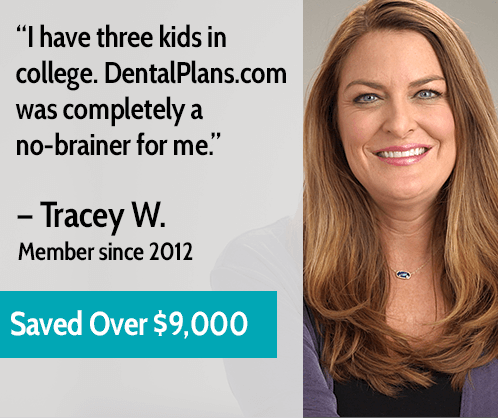“Health is a great blessing, and having access to the right insurance is a vital part of that blessing, protecting both health and financial stability.”
In Everglades City, Florida, the well-being of residents is closely linked to the accessibility of quality health insurance plans. With proper healthcare coverage, individuals and families can ensure better health outcomes and financial security, allowing them to pursue their lives without constantly worrying about unexpected medical costs. Whether you are a small business owner, self-employed professional, skilled worker, or independent contractor, understanding the intricacies of health insurance can lead to a peace of mind that is invaluable. Accessing the right plan tailored to your unique needs is essential in today’s rapidly changing healthcare landscape.
Don’t navigate the complex choices alone! A market research consultation with a licensed health insurance expert can save you time, money, and prevent costly mistakes in selecting the right health coverage. Let professionals guide you through the options available, ensuring you find the best fit for your needs. Fill out the form below to get started:

Understanding Marketplace vs. Private Insurance
Marketplace Insurance Options
The Affordable Care Act (ACA) marketplace is a vital resource for many residents seeking health insurance. Here, individuals, families, and small business owners can explore various plans that provide essential health benefits. Marketplace plans often offer subsidies based on income, making them more accessible for those under 65 without employer-provided insurance. The open enrollment period allows individuals to switch or select plans, ensuring coverage for a range of medical needs. However, while these plans can offer lower costs at first glance, they often come with higher out-of-pocket expenses and deductibles that can make affordable healthcare challenging.
Private Insurance Advantages and Disadvantages
On the other hand, private insurance offers flexibility and a broader range of plan options tailored to specific needs. Individuals can choose high-deductible plans for lower monthly premiums or comprehensive packages that cover more services upfront. However, private insurance can be more expensive, particularly for those with pre-existing conditions, where coverage may be limited. Additionally, private plans might not include essential benefits like preventative care or predefined thresholds for out-of-pocket costs compared to ACA marketplace options. Understanding these trade-offs is key to making informed decisions suited to your lifestyle.

The Impact of Deductibles on Your Health Costs
What is a Deductible?
A deductible is the amount you pay out-of-pocket before your insurance coverage kicks in. Understanding different kinds of deductibles can greatly impact your overall costs. High-deductible plans typically offer lower monthly premiums, making them attractive for many families and individuals. However, if medical needs arise, the upfront expense can be daunting. Evaluating your health needs and examining potential out-of-pocket costs in relation to your deductible is vital in deciding which path is best for you.
Multiple Deductibles? Here’s What to Know
Some health insurance plans feature multiple deductibles based on in-network versus out-of-network providers. This means that you may have a higher deductible when seeking out-of-network care, complicating your healthcare budgeting. Additionally, understanding specific family coverage deductibles, where your family might collectively contribute to a single deductible, can further influence your decision. Assessing these factors helps in determining the right plan and prepares you for managing potential healthcare costs throughout the year.
Get a hussle-free consultation
Out-of-Pocket Expenses and Maximums Explained
Understanding Out-of-Pocket Costs
Out-of-pocket costs include deductibles, copayments, and coinsurance that you must pay when receiving medical care. These expenses can pile up quickly, depending on the frequency of medical visits and the type of care required. It’s crucial to choose a plan with manageable out-of-pocket costs that align with your health care needs and financial situation. Evaluating your family’s medical history can also guide you in understanding potential future health expenses and deciding which plan provides the most value.
Importance of Out-of-Pocket Maximums
An out-of-pocket maximum is the upper limit on how much you’ll pay in a policy year for covered services. Once you hit this cap, your insurer pays 100% of the allowed amount for covered services. Knowing your plan’s out-of-pocket maximum can protect you from exorbitant costs in case of severe injuries or chronic medical conditions. Weighing the corresponding premiums and your health’s unpredictability against the out-of-pocket maximum is essential to choosing an insurance plan that secures your peace of mind.

Pre-existing Conditions: What You Need to Know
Coverage Options for Pre-existing Conditions
For residents in Everglades City with pre-existing health conditions, understanding how insurance plans handle these situations is crucial. Under ACA marketplace options, individuals have the right to have their pre-existing conditions covered without increased costs based on their health history. This level of protection allows for essential care without fear of financial ruin. It’s an important consideration for families and individuals with chronic health issues who require consistent medical attention.
Limitations in Private Insurance
While the ACA marketplace offers comprehensive coverage for pre-existing conditions, private insurance may not provide the same assurances. Some plans impose waiting periods, exclusions, or increased premiums for applicants with known health issues. This variability can make a significant difference in health management and costs. Therefore, it’s vital for residents to thoroughly review their options and upgrades to ensure they adequately cover pre-existing conditions, aiding in maintaining their overall well-being and financial health.

Navigating Provider Networks
In-Network vs. Out-of-Network Care
Navigating provider networks is a critical aspect of choosing a health insurance plan. Plans often feature in-network providers who have agreements with insurance companies to provide services at reduced rates. Choosing in-network care can significantly minimize out-of-pocket costs. However, it is essential to verify if your preferred doctors and facilities are included in these networks, as unexpected out-of-network visits might lead to significantly higher medical bills.
The Benefits of Narrow Networks
Narrow networks can help control costs, allowing insurers to negotiate lower prices with select providers. However, these plans might limit your choice of doctors and specialists, impacting your access to care. Understanding the specifics of any network you might be considering is crucial — particularly for families or individuals who rely on ongoing medical treatment. Weighing the benefits of cost savings against the potential limitations on provider choice is vital in selecting an insurance plan that suits your healthcare needs.
In conclusion, choosing the right health insurance plan is essential for your overall well-being and financial health. With options available through both the ACA marketplace and private insurance, understanding your specific needs and the nuances of each plan can provide significant advantages. Secure your peace of mind today by reaching out for professional guidance!
If you need immediate assistance, don’t hesitate to call or text (407) 588-0505.
Frequently Asked Questions
What is the difference between ACA marketplace and private insurance?
The ACA marketplace offers plans that must comply with a range of consumer protections, such as covering pre-existing conditions, while private insurance can vary significantly in terms of coverage and cost, potentially providing less protection.
Are premiums higher for people under 65?
Premiums can vary based on several factors, including age, location, and health status. Typically, younger individuals may see lower premiums, but specific health needs can influence costs significantly.
Can I switch my insurance plan during the year?
Generally, you can only change your insurance plan during open enrollment periods unless you experience a qualifying life event, such as marriage or losing previous coverage.
How do out-of-pocket maximums affect my costs?
Out-of-pocket maximums limit the total amount you pay in a year. After reaching that limit, your insurance covers 100% of covered services, providing financial protection against costly medical expenses.
What are the implications of having a high deductible?
High-deductible plans can lower your monthly premium but require more upfront costs before coverage kicks in. Understanding this trade-off is crucial for managing potential healthcare costs effectively.







0 Comments